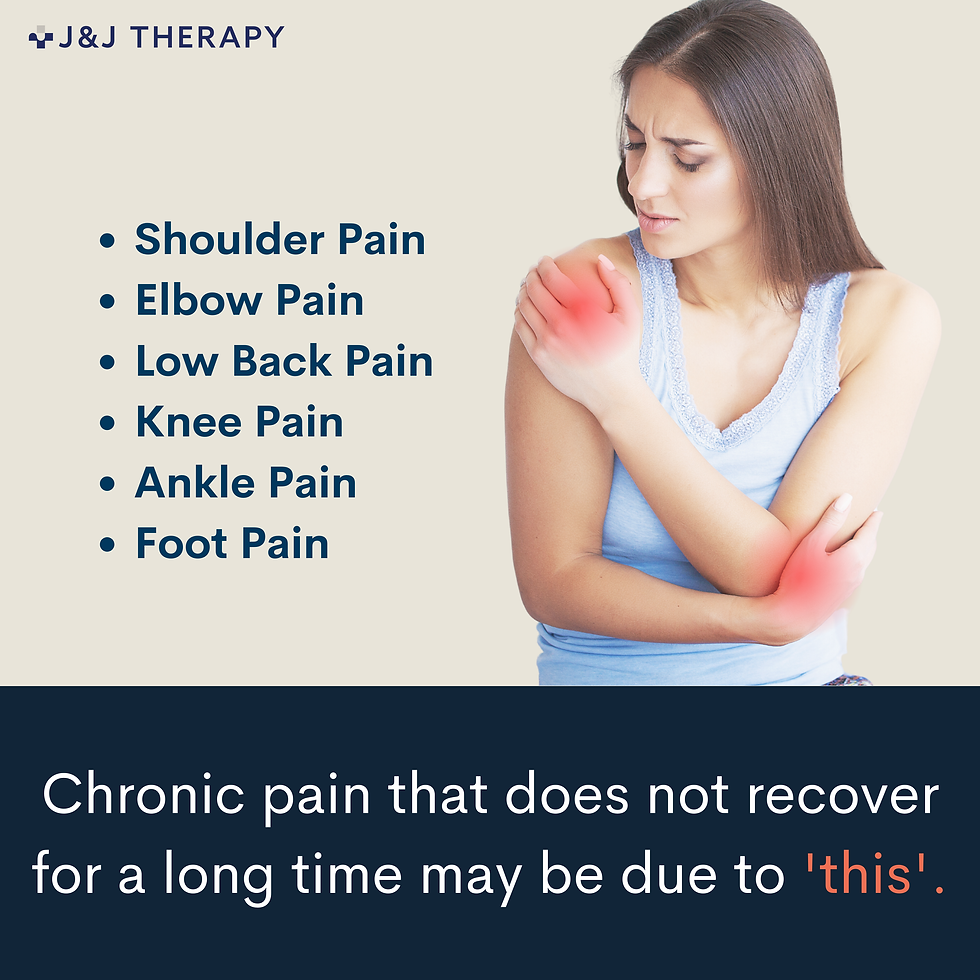Rotator Cuff Pain in New Malden: Quick Self‑Check, Why It Hurts, and the Fastest Ways We Treat It (Physio · Massage · Radial Shockwave)
- J&J Therapy
- Oct 13, 2025
- 3 min read








Struggling with shoulder pain that won’t shift? Use this quick guide to understand what’s going on, how rotator‑cuff injuries behave, and which of our treatments—physiotherapy, therapeutic massage, lymphatic drainage, electrotherapy (ultrasound/TENS), or radial shockwave—is likely to help you most.
30‑second self‑check
Front/side shoulder pain when reaching overhead or rotating
Night pain when lying on that shoulder
Weakness, catching/clicking, difficulty with dressing or washing hair
Red flags → major trauma with inability to lift, fever/infection, new numbness/weakness: contact your GP/NHS 111 or A&E first. (See our checklist slide, p.2.)
What is the rotator cuff—really?
Your cuff is a team of four muscles (supraspinatus, infraspinatus, teres minor, subscapularis) that keep the ball‑and‑socket steady and power lifting/rotation. When these tendons get irritated, you feel that sharp arc of pain. (See the anatomy diagram, p.3.)
Why does it hurt? (Mechanism & causes)
Rounded shoulders and forward head posture can narrow the sub‑acromial space → tendons get impinged and inflamed. Risk also rises with racquet sports, sudden heavy lifts and age‑related changes. (See the mechanism infographic, p.4.)
Why recovery feels slow
Tendons have poor blood supply, so rest alone rarely works. Graded loading + the right clinical treatment is the fastest route; left untreated, problems can progress from tendinitis → tendinopathy → partial tear → full thickness tear → muscle wasting. (p.5.)
How we fix it at J&J (what to expect)
Integrated care, one place: HCPC‑registered physiotherapist assessment → corrective/rehab exercise → Korean clinical massage (deep trigger‑point, myofascial release, assisted stretching) → add ultrasound/TENS or radial shockwave if needed. This East‑meets‑West model means you don’t just get a sheet of exercises—you get hands‑on change plus a plan.Our approach is delivered by a registered physio working with experienced Korean clinical therapists; see team credentials.
Treatment chooser — pick what matches your shoulder
Your situation | Best first step at J&J | Why this works |
Achy front/side shoulder with overhead reach; symptoms < 6 weeks | Therapeutic Massage + Physio‑led mobility/strength | Releases overactive pec/delt, restores scapular mechanics; you leave looser and moving better. |
Night pain, clicking or persistent pain (> 6–12 weeks) | Physiotherapy + Radial Shockwave (ESWT) + targeted rehab | Clinically used for persistent tendon pain; boosts circulation and healing while we reload safely. |
Heavy, swollen arm (post‑op/lymphoedema) | Manual Lymphatic Drainage + pneumatic compression | Gentle strokes promote lymph flow; compression finishes the job for lighter limbs. |
Acute flare with muscle spasm | Ultrasound + TENS after manual work | Sound waves calm deep inflammation; TENS soothes irritated nerves—great as a finishing touch. |
Desk posture (rounded shoulders) | Therapeutic Massage + posture re‑education | Improves range, reduces impingement risk from poor posture. |
Any red flag | See GP/NHS 111/A&E first | Safety first. |
We deliver radial shockwave where appropriate; it’s non‑invasive and quick to add to your session.
Typical pathway
Precise physio assessment & diagnosis → 2) Hands‑on release + mobility → 3) Progressive loading (not bed rest) → 4) Add ESWT/ultrasound/TENS if needed → 5) Long‑term posture & strength. (See “recovery needs graded loading”, p.5; and our integrated‑care slide, p.7.)
FAQs
Do I need a scan first? Not usually. We start with a thorough physio assessment and only refer if red flags/atypical findings appear.
Does shockwave hurt? Discomfort is brief and adjustable; we combine it with hands‑on care and rehab so it’s targeted, not random.
Will I just get exercises? No. Our model blends skilled manual therapy + rehab for changes you can feel the same day.
Ready to move your shoulder freely again?
Opening hours: Mon–Sun 09:00–19:20. Booking/cancellations: 24‑hour policy.Contact: Phone 07935 869938 / Email JJTHERAPY365@gmail.com.



Comments